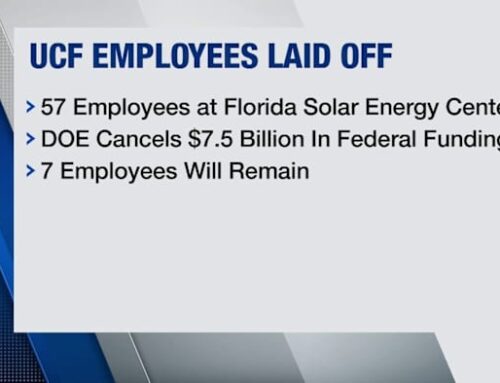Best of the Week: November 14 – November 20, 2025 | Cannabis Science and Technology – Cann
November 21, 2025
Let’s dive into the top stories shaping the conversation this week. Summaries of each article are listed below.
Darrin Smith, the US Attorney for the District of Wyoming, has announced that new guidance from the Department of Justice, has instructed for the prosecution of minor cannabis violations on federal land. “The US Department of Justice rescinded previous guidance concerning the prosecution of simple marijuana possession,” the press release stated. “US Attorney Smith promptly notified federal law enforcement agencies that marijuana offenses occurring on federal land, such as national parks, will now be rigorously prosecuted.”
Previously, President Joe Biden had pardoned some US citizens, as well as lawful permanent residents, in regard to offenses that were connected to the use of cannabis, attempted possession, and simple possession. US Attorneys were additionally instructed to not prosecute these types of offenses.
Researchers with Oregon State University analyzed responses from panelists sampling cannabis inflorescence aroma, proposing a common framework for an established vocabulary.
“Aroma plays a key role in how consumers judge cannabis quality, yet until now there’s been no standardized language to describe it,” explained study author Tom Shellhammer, professor of food science and technology at OSU in a November 14 press release. “This research lays the groundwork for a shared vocabulary that benefits consumers, retailers and growers.”
“Beyond potency: A proposed lexicon for sensory differentiation of Cannabis sativa L. aroma,” was published in PLoS One in October 2025.
The research compared two medical cultivars (“Trump” and “Cherry”) grown using precision water stress, demonstrating a potential for a genetic tolerance for salinity. In both the higher osmotic stress treatments and the hybrid treatments, plant height was reduced by 15%. In the hybrid treatment, flower yield decreased 20% in the Trump cultivar, yet the decrease in yield in the high salinity treatment was not statistically significant. Ultimately, the results indicate that it is difficult to reduce plant size without also reducing flower yield, the researchers explained. “These findings confirm that Cannabis sativa is highly tolerant to osmotic stress and indicate that osmotic stress during vegetative growth can reduce plant height and increase harvest index,” the researchers concluded.
“Crop steering through osmotic stress can reduce height but reduced yield in medical Cannabis,” was published in the Journal of Cannabis Research in November 2025.
A recent clinical trial, published in the American Journal of Psychiatry, investigated the connection between cannabis smoking and reduced intake of alcohol. Brown University (Providence, Rhode Island) researchers looked into how using cannabis could affect a subjects’ interest with alcohol. The 157 participants included in the study consisted of having a history of cannabis and alcohol use.
Results from the clinical trial expressed that post-consumption of low and moderate potency cannabis decreased study participants amount of alcohol they consumed. This was specific to study subjects that consumed cannabis that consisted of 3.1% THC. These participants lowered their alcohol consumption by 19% when compared to the placebo. Participants that received cannabis cigarettes that were comprised of 7.2% THC, lowered their alcohol consumption by 27% compared to the placebo.
How can medical cannabis affect symptoms of Alzheimer’s? This month’s Healer webinar, hosted by hosted by Dustin Sulak, DO, included an analysis of four recent in vitro and in vivo research studies on how cannabinoids can moderate various dementia symptoms, including those for Alzheimer’s disease, and even the core issue of memory loss and cognitive decline.
Dr. Sulak spoke to the potential of cannabis in alleviating the multiple stresses of dementia: “Dementia, not just Alzheimer’s dementia, but dementia in general is a huge problem,” he stated. “We don’t have good treatments for it. We have an aging population, it requires a lot of care, it’s a big financial burden on the economy. We need cost effective and overall safe and effective treatments for this. We have them in our beloved plant cannabis, and we need to continue to get these to people and to unlock their secrets.”
Search
RECENT PRESS RELEASES
Related Post




